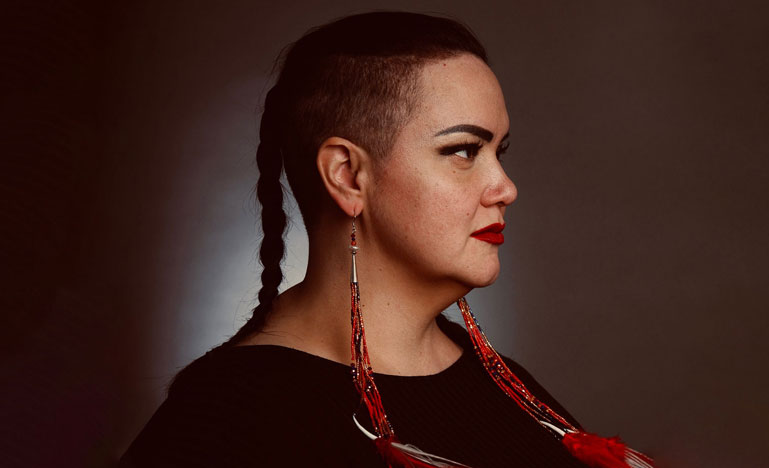Tackling settler dominance perspectives in law
How to expose students to Indigenous legal traditions in law schools.

In a previous article, I argued in favour of developing anti-dominance training in law schools using a decolonial framework, as a way to displace deeply rooted narratives of settler dominance in legal formation.
So what does anti-dominance training for law students look like? An example would be the curriculum I am developing for incoming Indigenous law student support through a summer program at the Wahkohtowin Law and Governance Lodge.
The Lodge focuses on sustainable interdisciplinary research and reciprocal community engagement. Co-founded by University law professors Dr. Hadley Friedland and Dr. Shalene Jobin, it responds to the Truth and Reconciliation Commission’s Call to Action #50 to establish Indigenous Law Institutes for the “development, use and understanding of Indigenous laws.”
If we are to tackle the dominance of settler perspectives in law schools, Indigenous legal traditions must be afforded equal standing to the common law tradition rather than be treated as a mere cultural accommodation within the dominant legal framework.
It is still relatively rare for law professors across Canada to receive training in Indigenous legal traditions at this time, and few are likely to boast proficiency in any Indigenous legal traditions. This educational deficit should serve as an important caution for well-meaning initiatives to incorporate Indigenous law into Western legal education. There is a risk that Indigenous laws will be distorted and subsumed within the common law by law professors and students who are more familiar with the latter system and work within its implicit assumptions. When remedying the absence of Indigenous laws in the existing curriculum, legal educators need to be clear about the difference between learning about Indigenous legal traditions as law and on their terms and shoehorning Indigenous laws into recognizable compartments of the common law.
Another longstanding deficit in legal training arises from how new students are introduced to the common law through case law and legislation. Indigenous peoples are typically showcased as either victims or offenders (often in criminal law), with rare examples of Indigenous peoples as litigants in upper-year courses (for instance, in constitutional law). The formative years of training for law students reinforce a lens of dominance through which their own human agency in applying the law as practitioners can easily become toxic. That then perpetuates systemic discrimination.
Indigenous legal traditions are as diverse as the Indigenous communities that generate and sustain them. As Dr. Friedland teaches, norms have to be intelligible and debatable in order to be law. This is as true of Indigenous laws as any others. Although many law schools have developed courses that focus on Indigenous Peoples and their relationships to Canadian law, students still lack exposure to Indigenous legal traditions in the law school environment.
The creation of the Wahkohtowin Launchpad into Law Summer Workshop Series seeks to counterbalance the dominance of Canadian law exposure using a framework of Indigenous legal traditions. By participating in this summer support program, Indigenous students will be exposed to Indigenous laws for the first time while learning core legal skills before their official law school journey begins in the fall.
Through structured engagement with Indigenous laws as law and then select Canadian law topics, they will also have the opportunity to learn respectful community engagement practices. As Dr. Friedland points out, it is important that incoming law students first encounter their peoples and ancestors in the legal curriculum “as reasoning people within reasonable legal orders.”
The Launchpad into Law program is distinct from the Program of Legal Studies for Native People (PLSNP) that was offered from 1975 to 2019 through the Native Law Centre (now the Indigenous Law Centre) at the University of Saskatchewan. That program served for many decades as an invaluable first introduction to law for Indigenous students. It focused on developing core legal skills for academic success and was organized around the mandatory first-year course of property law. A significant portion of its curriculum was dedicated to learning Aboriginal law (a topic within Canadian law). There was also a customary law component usually directed by an elder or traditional knowledge keeper. It assisted many Indigenous students in embarking on their personal journeys as legal professionals, many of whom continue to support one another through the Indigenous Bar Association.
This year and in upcoming years in consultation with the University of Alberta, the Launchpad into Law will honour the foundation that the PLSNP laid before it. It will prepare incoming Indigenous law students as they become legal practitioners, build community engagement skills with their cohort that they can then use to develop relationships and opportunities with the wider law student community.
We have an incredible future in partnering between Indigenous peoples, settlers and newcomers, just as the Treaties intended. Incoming Indigenous law students have a critical role in creating this future, and it is an honour to have the opportunity to support them as they begin their journey.
Ekowsi.


